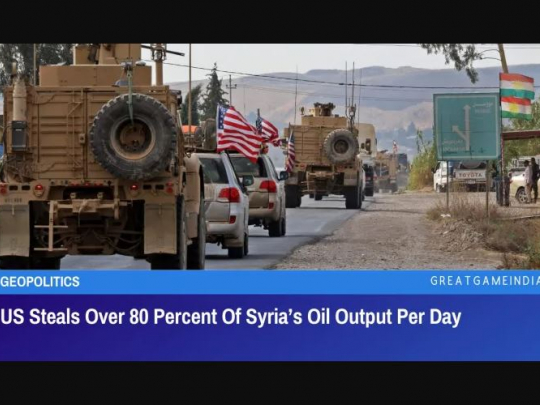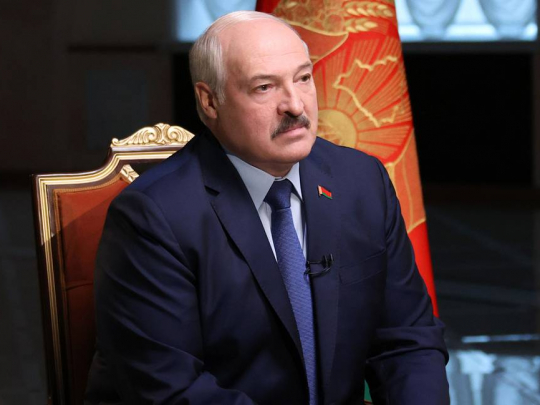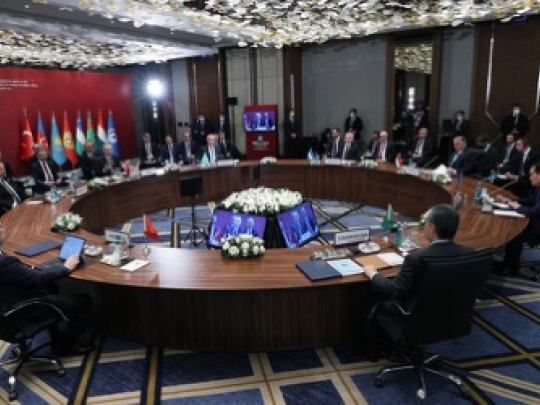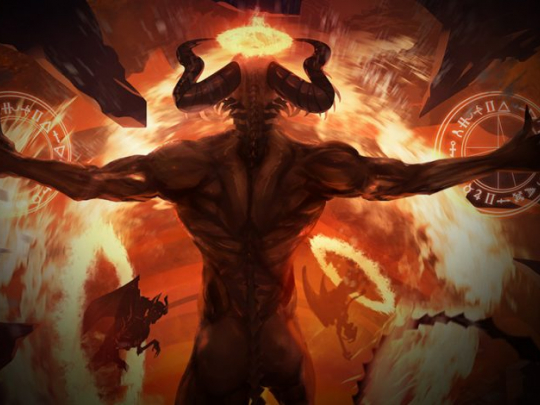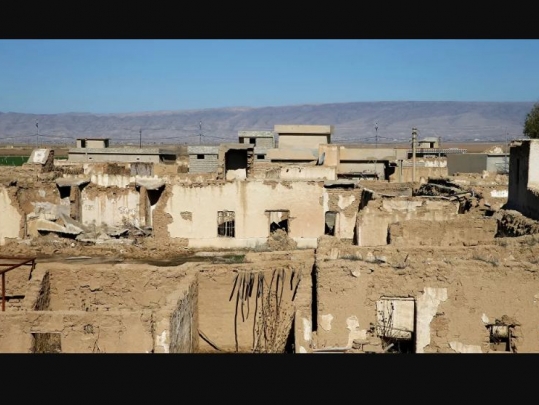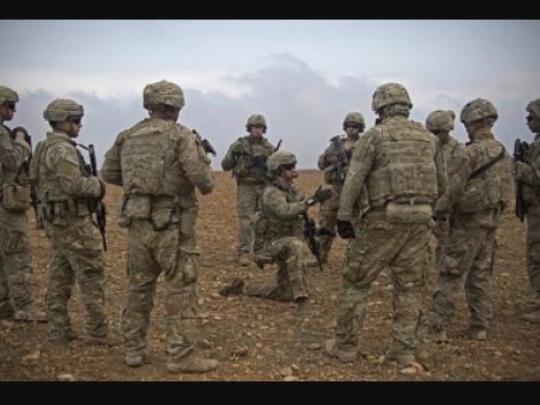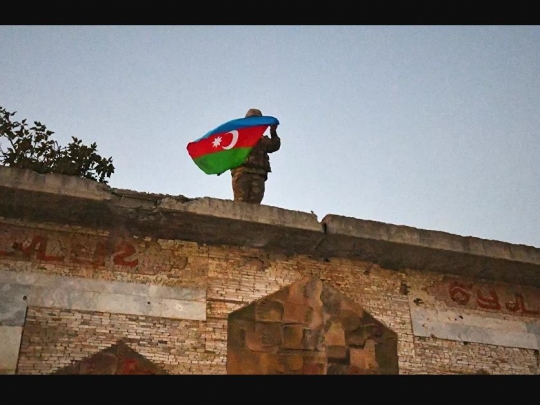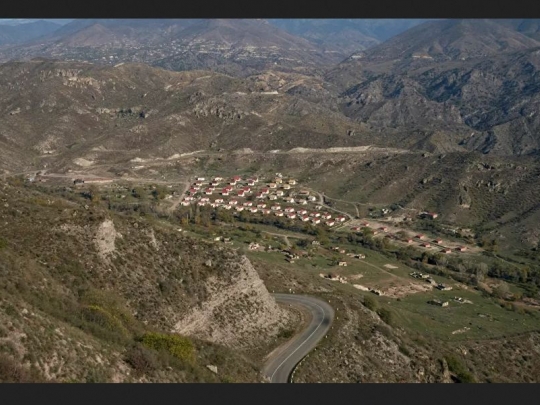Azerbaijan's President Says Will Agree to Ceasefire If Armenia Vows to Withdraw Troops From Karabakh
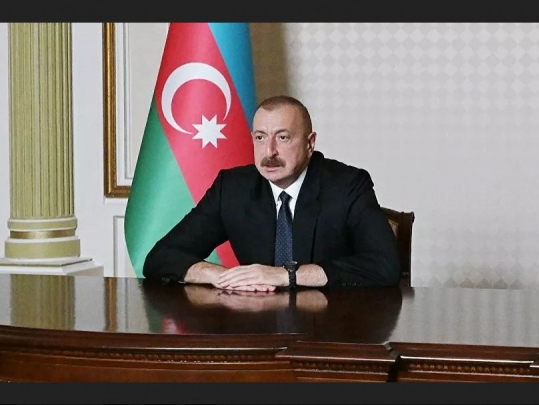
Major fighting in the contested South Caucasus region of Nagorno-Karabakh began last Sunday, with both sides accusing one another of starting the conflagration, and claiming that their forces have killed thousands of enemy troops.
Baku would be prepared to cease its operations in Nagorno-Karabakh if Armenia proposed an agenda for the pullout of its forces from the contested region's cities, Azerbaijani President Ilham Aliyev has announced.
"Our condition for a ceasefire is that Armenia should propose a temporary agenda for the withdrawal of troops from the occupied Azerbaijani territories in Nagorno-Karabakh, which would not be shown merely in words, but implemented in deeds, [with specifics] on which territories would be freed on which days," Aliyev said, speaking to Al-Arabiya on Sunday.
"We agree with the point of view that the problem with Armenia should be resolved through dialogue, but there must be a foundation for this. The Armenian Prime Minister must declare his adherance to previous agreements, according to which the territories of Nagorno-Karabakh were recognized as occupied Azerbaijani territories," Aliyev added.
According to the president, stopping the fighting will also require an apology from Prime Minister Nikol Pashinyan, who allegedly "called the occupied Azerbaijani lands Armenian."
Otherwise, Aliyev implied, Azerbaijani operations would continue, and Baku would try to establish normal relations with the Armenian people after liberating its lands.
"We will try to restore normal relations with the Armenian people after the liberation of our occupied territories. We will try to return to good-neighbourly relations, although it will not be easy," the president said.
On Thursday, Pashinyan accused Turkey of coordinating Azerbaijan's military campaign, and suggested Ankara had returned to the South Caucasus "to continue the Armenian Genocide" in pursuit of its "imperialistic dream."
In his remarks Sunday, Aliyev also demanded an apology from French President Emmanuel Macron for his claim that Syrian jihadists had been transferred to the region to carry out operations in Nagorno-Karabakh.
"There are no mercenaries. We have an army of 100,000 soldiers. I demand that France apologize and show responsibility," Aliyev said.
Flashpoint Karabakh
The Azerbaijani president's comments came as large-scale fighting in Nagorno-Karabakh entered its seventh day. Nearly 40 civilians, and hundreds if not thousands of servicemen from both sides, have been killed, with the Armenia-backed self-proclaimed Artsakh Republic and Azerbaijan accusing one another of deliberately targeting civilian areas in missile and artillery strikes.
The Nagorno-Karabakh conflict began in the late 1980s, at the height of Mikhail Gorbachev's perestroika reforms, with ethnic Armenians living in the Nagorno-Karabakh Autonomous Region inside Soviet Azerbaijan accusing Baku of discriminating against them and launching a campaign to secede and join the Armenian Soviet Socialist Republic.
Baku sought to prevent this from happening, and in late 1991 abolished the region's autonomous status. Between 1992 and 1994, Armenian militias backed by Yerevan waged a full-scale war for control of the region with the Azerbaijani military, with over 40,000 troops and civilians from both sides killed.
In addition, the Karabakh conflict poisoned relations between the neighbourly peoples, and ethnic tensions, pogroms and ethnic cleansing campaigns forced over 1.1 million Armenians and Azerbaijanis to flee their homes and communities, both in Nagorno-Karabakh and in other parts of Armenia and Azerbaijan.
A ceasefire in the Karabakh conflict was signed in 1994, but has occasionally reverted to flare-ups of fighting in the two-and-a-half decades since.
- Source : Ilya Tsukanov




